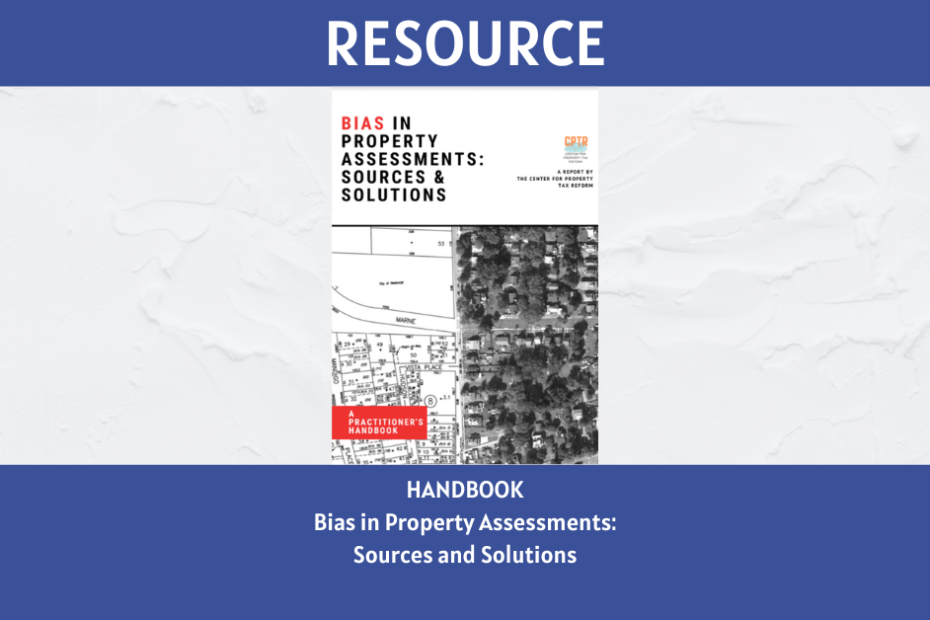Bias in Property Assessments: Sources and Solutions
So we’re left with these dual realities: the premise of property taxes is sound, but the execution is inequitable. And for us at the Center for Property Tax Reform this brings two questions immediately to mind: First, where does bias in property assessments come from? (After all, professional assessors’ primary objective is to create valuations that are “fair and equitable,” not for some property owners, but for all of them.) And second, recognizing that many current assessments fall short of meeting the fair and equitable standard, what can we do to fix them?
It was with these questions in mind that we created our “Bias in Assessments Handbook.” The Handbook combines an extensive literature review with data gathered through one-on-one interviews with professional assessors in some of the nation’s largest jurisdictions – assessors who have personally and professionally dedicated themselves to identifying and remedying regressivity and inequities in their jurisdictions’ assessments and can speak with authority about how to do it right.


